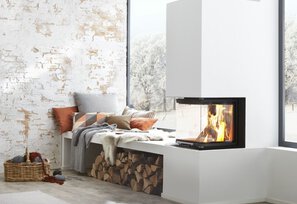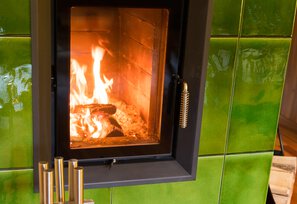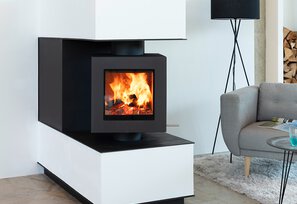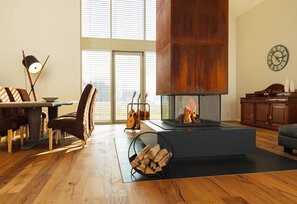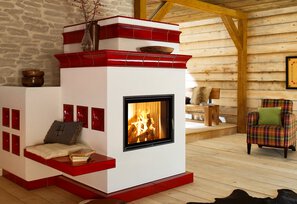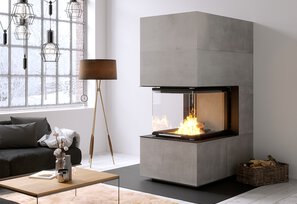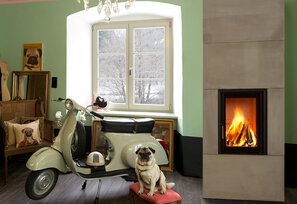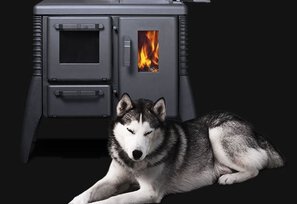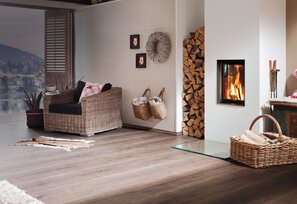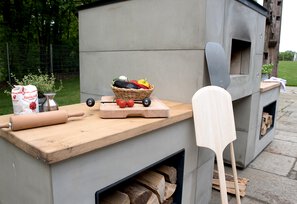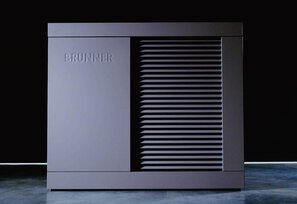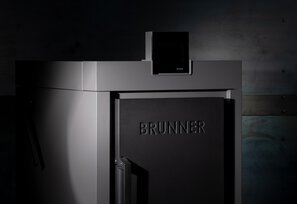Engine of the fireplaces and stoves
The chimney
A chimney is essential for fireplaces. It fulfils the important function of discharging flue gases to the outside and supplying the oxygen needed for heating. For this to work smoothly, its given height and cross-section must fit the appliance in question. What the so-called fireplace impact has to do with this and what role regular maintenance plays is explained here.

Function of the chimney
The basic purpose of a chimney is to transport the flue gases produced when heating a fireplace or stove to the outside and at the same time to supply the fire with new oxygen. This is where the so-called fireplace impact comes into play. This is a physical principle based on the difference in density between hot and cold air.
The hot flue gases produced during combustion have a lower density than the cold air in the chimney. As a result, the hotter flue gases rise upwards and are discharged through the chimney. At the same time, this creates a negative pressure in the fireplace or stove, which draws in fresh air and supplies the fire with the necessary oxygen. With its negative pressure (draught effect), the chimney ensures the smooth functioning of the fireplace or stove and represents its "engine", so to speak.
A size that fits
For this principle to work, the design of the chimney (brick, stainless steel or 2-shell systems) and its dimensions must be matched to the corresponding fireplace or stove.
Otherwise, the necessary negative pressure cannot be generated to remove exhaust gases and supply oxygen. Therefore, a so-called chimney cross-section calculation is recommended, which is based on a DIN standard. This depends, among other things, on the type of fireplace, its output and the pressure conditions built up by the device.
Calculation and maintenance by the chimney sweep
When planning a chimney and before purchasing a stove or fireplace, the cross-section should be calculated by a specialist company. The district chimney sweep can help here and also advise on further legal requirements.
Even if you already have a wood stove and chimney, regular maintenance by a specialist company is important. The chimney sweep checks the chimney for deposits and cleans it to prevent malfunctions and a possible soot fire.


Conclusion
The chimney is elementary for the operation of a fireplace.
The chimney should already be planned when building a house, even if no fireplace is currently planned. In principle, a chimney increases the value of the property and retrofitting is much more complex and cost-intensive.
If there is still no chimney in the house, there are alternatives for retrofitting. Read more about this in our article "What to do if there is no chimney”.
